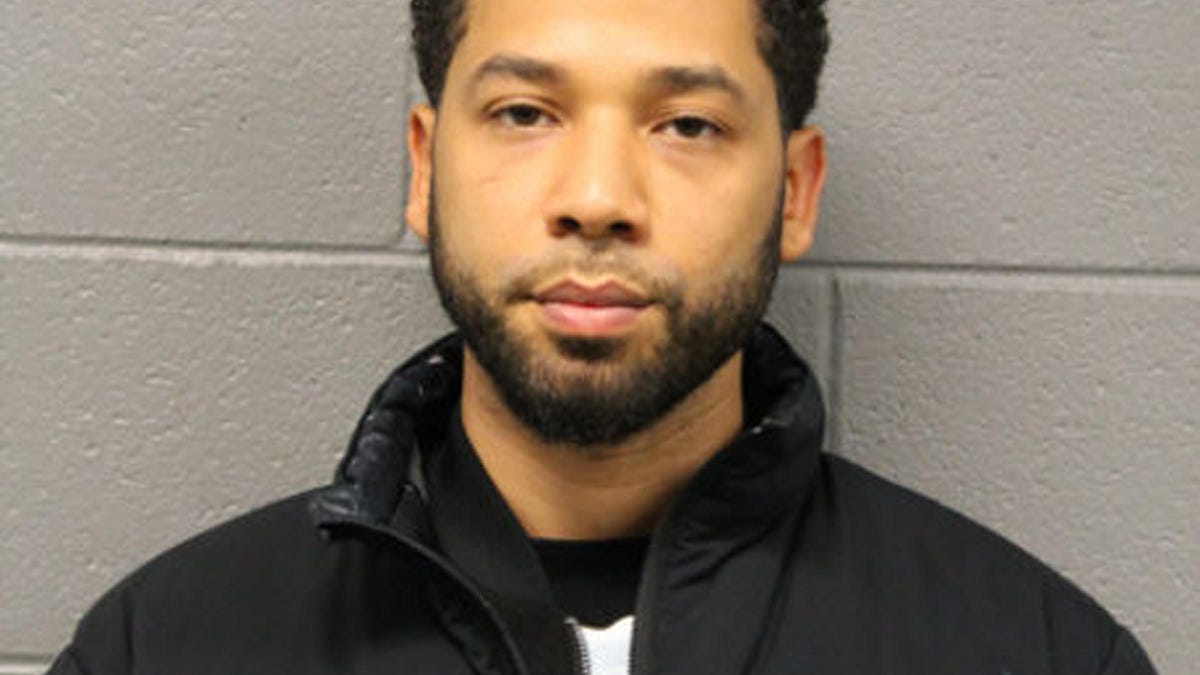Uber data helped ID accomplices in Jussie Smollett staged attack, police say
The actor’s story began to fall apart once data from Uber revealed the identity of the purported attackers, according to police.

Jussie Smollett's booking photo.
It was an Uber mistake that chipped away at Jussie Smollett's assault claim, Chicago police say.
On Wednesday, the actor was charged with filing a false police report after allegedly faking a Jan. 29 attack in Chicago. Smollett, who appears in the Fox drama Empire, said two men yelled racial and homophobic slurs while beating him.
Among the key pieces of evidence that Chicago police used in their investigation of his claim were the Uber records of two brothers he allegedly hired to fake the attack.
In surveillance footage, investigators saw Ola Osundairo and Abel Osundairo, who Smollett allegedly paid $3,500 to stage the attack, calling an Uber car to the North Side neighborhood in Chicago. They took cabs part of the way, police said, but data from the ride-hailing service gave investigators a name they could track down.
"We followed up on the rideshare and that was the lead that we needed in order to identify the two persons of interest," Edward Wodnicki, a Chicago police commander, said during a press conference Thursday.
Police used videos from surveillance cameras across the city and security footage from private citizens' cameras to track the brothers' trail, the commander said.
Uber didn't respond to a request for comment. The investigators also reached out to Lyft for information, the ride-hailing company said in an email.
Once they had the two brothers' names from Uber, police say, Smollett's plan unravelled. Chicago police superintendent Eddie Johnson said Smollett arranged the assault in order to raise his profile and negotiate a better salary on Empire.
Police executed more than 50 warrants on the two brothers, obtaining phone records and social media information on them. Police were able to match Ola with the Uber ride through phone records and data provided by Uber.
They found call records between Smollett and Abel after the staged attack, police say, as well as text messages between the two plotting the scheme.
Tech companies often get requests from law enforcement during investigations, and they usually provide the data that is sought. Sometimes these requests can conflict with a company's privacy standards, such as when Apple refused to break its encryption for an FBI investigation into a terrorist attack in San Bernardino, California. The FBI has also tried forcing Facebook to wiretap conversations on Messenger, which the social network fought.
These requests are often outlined in a company's transparency reports. Apple, for example, reported it received 32,342 government requests for data in the second half of 2018.
Uber received 231 search warrants on 1,595 accounts in 2017 and provided data on 1,355 of them, according to its transparency report. (One search warrant can contain requests for information from multiple accounts.) Lyft received 248 search warrants the same year and fully complied with 152 of them.
Smollett appeared in court Thursday, and the judge set a $100,000 bond. Smollett was released later in the day.
The actor declined to speak to media at the courthouse, but his attorney, Mark Geragos, told CBS News in a statement that his client would defend himself against the charges.
"Like any other citizen, Mr. Smollett enjoys the presumption of innocence, particularly when there has been an investigation like this one where information, both true and false, has been repeatedly leaked," the statement said. "Given these circumstances, we intend to conduct a thorough investigation and to mount an aggressive defense."
Chicago's police superintendent criticized Smollett, saying the actor's publicity stunt wasted police resources and distracted them from victims of real crimes.
"When we discovered the actual motive, quite frankly, it pissed everybody off," Johnson said at Thursday's press conference.
Smollett faces up to three years in prison.

